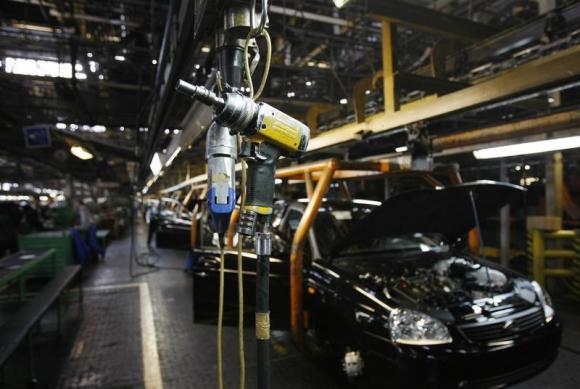Russia to support domestic car industry with subsidies
(Agencies) Updated: 2014-01-21 14:01
 |
|
General view of the AvtoVAZ assembly line on the Volga River, in Togliatti, September 25, 2009. [Photo/Agencies] |
MOSCOW - Russia plans to support its struggling auto industry with subsidies of up to 271 billion roubles ($8 billion) in the three years to 2016, the government said.
Russian car sales fell in 2013 and face another weak year as a stuttering economy puts off buyers, according to lobby group the Association of European Businesses (AEB).
The subsidies will be for research and development, to support jobs and to compensate for some costs related to meeting tighter exhaust emission standards, the government said in a statement on its web site.
Russia's largest carmaker is Avtovaz, maker of the Lada, which is set to be controlled by Franco-Japanese alliance Renault-Nissan by mid-2014. Other foreign carmakers have invested heavily in the country, such as Ford and General Motors.
Russia introduced a recycling fee for imported cars in 2012, angering the European Union which argued the fee - to cover the cost of scrapping a car when it becomes too old to drive - was not compatible with Russia's membership of the World Trade Organization (WTO).
The United States and Japan also complained about the levy.
The Russian government responded last year by saying it would apply the same fee to all cars - whether imported or manufactured in Russia - and some analysts said the latest support was a way of offsetting the cost for domestic carmakers.
"The introduction of subsidies will reinstate such government support to the industry at no additional cost to the budget," analysts at Bank of America said in a research note.
The WTO was not immediately available for comment.
Russia last year tried to prop up car sales with credit incentives. The program ended in December.
The government said Russia aimed to increase production of cars to 3.1 million units a year and light commercial vehicles to 280,000 units per year, without giving comparative figures.
Data from the AEB last week said car and light commercial vehicle sales are expected to fall by 1.6 percent in Russia in 2014 to 2.73 million units.
- NHTSA says finds no 'defect trend' in Tesla Model S sedans
- WTO rare earth ruling is unfair
- Amway says 2014 China sales may grow 8%
- President Xi in Europe: Forging deals, boosting business
- CNOOC releases 2013 sustainability report
- Local production by Chery Jaguar Land Rover this year
- Car lovers test their need for speed in BMW Mission 3
- China stocks close mixed Monday

















